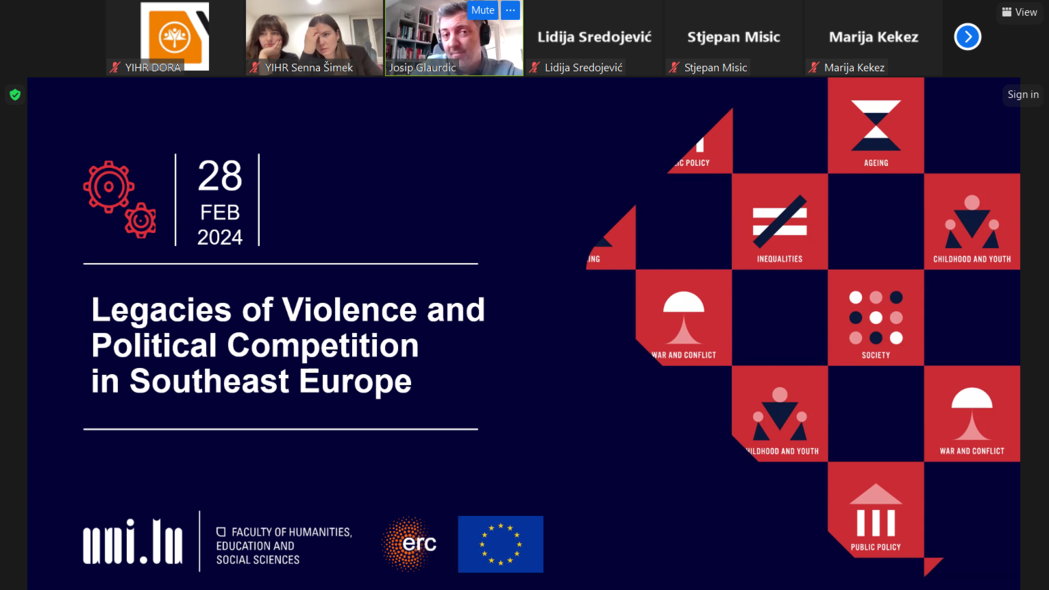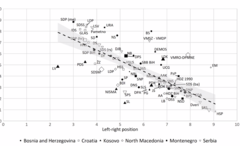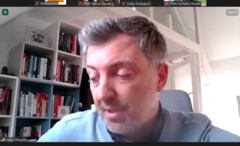Last week, we hosted our fourth Regional News Cafe Webinar featuring professor Josip Glaurdić, from the University of Luxembourg. Professor Glaurdić discussed the Legacies of Violence and Political Competition in Southeast Europe. The webinar attracted significant interest, drawing more than 30 participants joining via Zoom from Bosnia and Herzegovina, Croatia, Kosovo, Montenegro, Albania, Serbia, Belgium, Macedonia, and Slovenia. During the webinar, the professor presented an overview of the “Electoral Legacies of War: Political Competition in Postwar Southeast Europe (ELWar)” research project he conducted with a team of researchers. The participants also had an opportunity to ask questions and discuss some related topics with the professor during an interactive and interesting Q&A session.
Professor Glaurdić's research covers topics of comparative politics, international relations, and political economy, all the while rooted in historical analysis. The ELWar project focused on understanding the political aftermath of wars, lasted for five years and looked into political competition developments over the last thirty years in six Southeast European (SEE) countries: Bosnia and Herzegovina, Croatia, Kosovo, Macedonia, Montenegro, and Serbia.
Professor Glaurdić also introduced digital mapping platforms called Mapdat and Lexics (Lexicon of Croatian streets). Mapdat dives into statistical data from all SEE countries, encompassing ethnicity, income, education level, and support for existing political parties. Meanwhile, Lexics tracks street naming in Croatia offering insights into the evolving landscape of public memory and commemoration since the early 1990s.
The project used different research methods: public opinion research, expert surveys, experiments embedded in surveys, census data on casualties and refugees, as well as health data related to war-caused disabilities. It also included archival research, analysis of political speeches and (social) media content, as well as detailed surveys about war experiences.
One of the main findings of the project was that memories of war significantly affect how political parties compete in Southeastern European countries. The research showed how war legacies continue to influence societies long after conflicts end, affecting future generations, shaping economic policies, and influencing the public discourse on topics of war and national history.
Following the professor's engaging lecture, participants delved into thought-provoking questions that further widened their understanding of the political impact of war that persists even decades after the conflicts following the breakup of Yugoslavia.
We express our appreciation to Professor Glaurdić for generously sharing his invaluable research insights with our PYN members, activists, and all other interested participants. We also deeply appreciate everyone's active participation in this stimulating webinar. We eagerly anticipate reconnecting with you all in our upcoming regional coffee webinar session!



